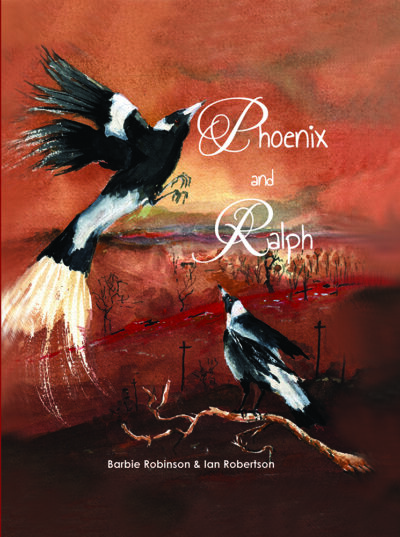Nigel George is an educator and author of five books on technology and self-publishing. In the third instalment of his series on AI tools, Nigel looks at how using AI can boost your writing business, and why using AI generated content isn’t a viable method for authors.
In part one of this series, I summarised the history of AI in non-technical terms and showed how the brains behind natural language AIs remain decidedly human. In part two, I delved into the challenges and opportunities AI presents for writers.
In this final article, I will dig deeper into some specifics on how indie authors can leverage AIs to spend less time on the things that, while necessary, cut into time spent on building their most important asset—writing books.
This article is not a tutorial on specific tools. I will instead focus on tasks that AI can complete more efficiently and more effectively than we can.
Understanding there are core business principles and techniques that lead to success is fundamental to my success in publishing. It’s also what I teach other authors. These business principles and techniques are the same now as they were 10 years ago, and will still be the same 10 years from now. It’s only the tools that change.
ChatGPT is built on GPT, which is an API. API is just a techy word for toolkit. There are plenty of others, but they’re all the same—they are toolkits you use to build something else.
This is the reason behind the confusing explosion of AI applications in the last few years. Most of these applications will not be around in a year’s time, let alone ten years’ time.
As writers, our most valuable asset is our creative output. Whether it is how we express our individual selves through prose or how we pass on our knowledge to others. Being able to reach our readers directly, independent of the whims of the traditional publishing industry, is the best part of being an indie.
But it comes with one major downside. To assume the role of publisher in your writing career means you also take on all the work that is traditionally done by your publisher.
All this extra work is not only a drudge for most of us, but it takes us away from building the body of work that is essential to our success as a writer.
I am a proponent of the idea that AI won’t replace humans, but humans good at leveraging AI will replace those that aren’t. I would further clarify that those who will enjoy the greatest success are the writers that leverage AI to add value.
There are two ways you can add value with AI:
- Save time on non-writing tasks, so you have more time to write
- Improve or expand your offering to readers
The first is by far the biggest in terms of the number of things you can add value to your writing business. At the very top of this list is using AI to generate as much of your marketing content as possible.
It might seem strange to call marketing a non-writing task when it usually requires a great deal of writing to produce. However, marketing is doubly costly to you as an independent author. This is because marketing takes up time you could spend writing, and it drains vital creative energy you could put to better use.
Here are some examples of what you can achieve with AI:
- Use an AI tool to generate 10 different variations of headlines and copy for ads to run on Facebook or Amazon. Split test them and keep the ones that convert the highest.
- Feed a new blog post to the AI and get it to generate several headlines. You can either pick the one you like most, or if your website has the capability, split test them to see which one gets the most clicks
- Get the AI to summarise the same blog post into a social media post
- Use AI to generate SEO-friendly meta descriptions for your website pages and posts
- Generate short videos for YouTube, Instagram and TikTok
- Generate Instagram captions
- Create catchy back blurbs and descriptions for your books to post to online retailers
- Beef up the call-to-action copy on your website forms to boost conversions
With a bit of imagination, you can add plenty more to this list.
AI is also handy for non-marketing tasks, like increasing the speed of information gathering. For example, using an AI to pull together summaries and reference material when conducting initial research on a topic.
I also found that AI is pretty good at creating an outline for a non-fiction subject that you can then expand into a full article or even a training course. AI can even generate FAQs and quizzes based on your content.
We should not forget editing tools like ProWritingAid and Grammarly either. These tools, while still falling short of a good human editor, improve with every new version.
When using AI to improve or expand our offering, there are a couple of areas I find of particular interest to authors.
AI is great for generating repurposed content. For example, if you create videos, not only are there several AIs that will generate transcripts for you (even Microsoft Word has this built in), but you can also create slide shows from the video and there are AI tools that will allow you to cut-and-paste text within the transcript and it will automatically edit the video for you.
Another area going gangbusters is digital audio narration. The audiobook market is expanding at a far greater rate than eBooks and print. While there is still resistance from many listeners, the pool of people who don’t mind listening to a digital narrator is significant and growing. If you have any doubts about how freaking good these talking AI’s have got, you should check out DeepZen.
What about AI Generated Content?
You might wonder why I’ve got through an entire article without once mentioning using AI to generate original content.
Ignoring the fact that AI generated content is not original (despite claims to the contrary), there are two major reasons for this:
- Copyright is for humans. This has been the case since the creation of international copyright laws and, notwithstanding vested interests with deep pockets, is unlikely to change.
- You WILL get caught. For less than ten dollars, I can plug your 80,000 word novel into Originality AI, and it will tell me in seconds with near 100% accuracy how much of it was AI generated.
As writers, we are paid for our creative output. Yes, sometimes that payment is less than the cost of a bag of peanuts, but it’s ours. You can’t copyright AI generated content. Plus, if your income is derived from creating copy for payment, what value do you think your customers or readers are going to put on that content once they know you clicked a button and maybe tidied it up a bit afterward?
Yes, there is a lot of pressure on writers to produce. Whether it be appalling ideas like writing 20 crap books quickly and retiring to Mexico, or a certain dominant retailer who rewards those who write a lot over those who write well, I understand we are in a quantity over quality market.
One of the current popular content generator applications makes a claim along the lines of “don’t rewrite that sentence 100 times when our AI can write it for you!”
Call me crazy, but I would never give up the satisfaction of finally getting that sentence right. I also know that next time I would probably only rewrite it 20 times. One day, I know I will nail it the first time.
That’s why I write—to learn and to grow; to put something out in the world that only I could create. Using a machine to do this would feel like cheating. And I fundamentally believe that our lifetime fans, the one that will stick with us through thick and thin, will feel the same way too.
Achieving success as a writer is a long game. Very few will make it, but I am confident the ones that do won’t have got there by taking shortcuts.
And that’s it for my series on AI. It has been an interesting journey. It was only three months ago I wrote my first word on AI and things have already changed so much. I can’t say the journey has done anything to reconcile my techie brain’s enthusiasm for AI with creative brain’s terror, but I do know there are some AI tools that I am looking forward to employing in my writing business. There are also quite a few more that both brains agree should be left well alone.
Nigel George is an entrepreneur and manager with 25+ years’ experience building and managing technology companies. He is the author of five books on technology and self-publishing. He has independently published his books since 2015 and is an expert on how to build and run a successful independent publishing business. Nigel is passionate about passing on his expertise to other authors, teaching them how to succeed as an independent author. You can learn more about his work on his Indie Publishing Machine website.




